Spoiler Alert
This article has massive spoilers for Final Fantasy VII Rebirth, Final Fantasy VII, Chrono Trigger and Chrono Cross.
It is recommended to finish Final Fantasy VII Rebirth before reading.
Introduction
Final Fantasy VII Rebirth is one of the best games the franchise released in recent times. Its story is engaging, its characters and the decades of development around them are fascinating to follow, and its exploration is a perfect mix between the open world of current generations with the maps we know from the PlayStation One era, making this one of the best gaming experiences for fans.
Its ending, however, brought more questions than answers. Many things happen in its last chapter and require attention to detail to absorb each part and understand how the plot ends and paves the way for the third and final episode of the Remake project.
In this article, I present my analysis of what happens at the end of Final Fantasy VII Rebirth and what its implications are for the overall narrative, as well as addressing why the Remake project is flying too close to the Sun and might get burned in the third game.
What happens in Final Fantasy VII Rebirth's Ending?
FFVII Rebirth's fourteenth and last chapter, End of the World, can be quite confusing, and it takes some time for us to understand what really happens there.
While it maintains most events of the original game, its execution revolves around elements added to the game since FFVII Remake, with timelines, Whispers, Zack and the existence of a Multiverse playing important roles as the story unfolds until the ending.
Below are its main events, with an emphasis on the most important facts for us to understand where the game wanted to go and what we can expect from the third part.
Multiverse
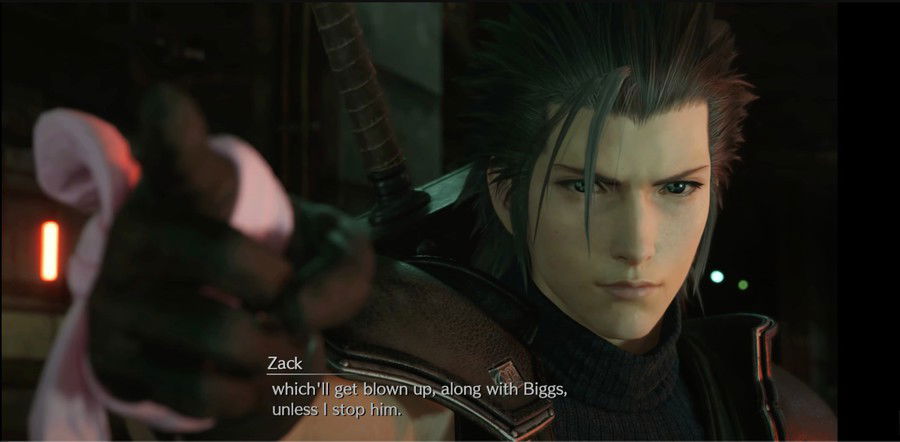
The chapter begins releaving how a new core element works: Multiverse, distinct realities which coexist in separate timelines. In them, we see Zack on Midgar's train rails, divided between going to the Shinra building to save Cloud or going to Sector 6 to stop Biggs from bombing its reactor. When he chooses to save Cloud, a rainbow-colored light appears on the path that would lead him to Biggs.
As indicated at the end of Final Fantasy VII Remake, where Zack survives what would be the moment of his death, the main path to identify the difference between the universes is in a subtle detail: Shinra's mascot dog, Stamp , has a distinct race in each timeline.
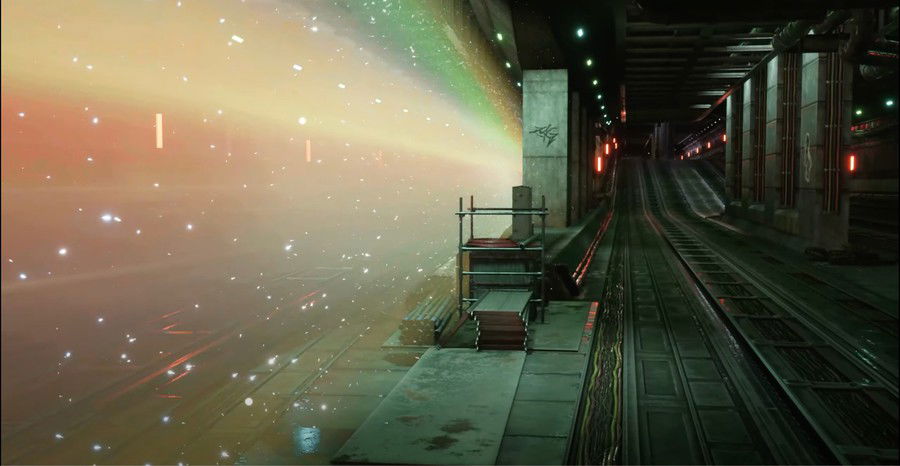
At the start of Chapter 14, we see five different universes in Final Fantasy VII Rebirth, where Stamp represents them with the following races:
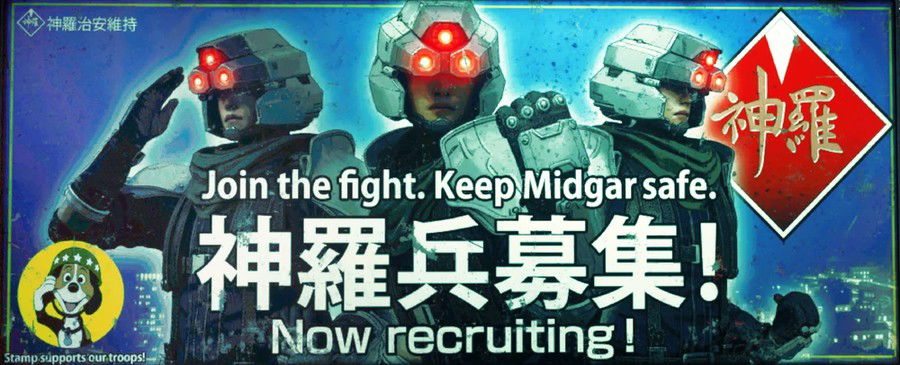
Beagle - Beagle is the “main” universe of Final Fantasy VII, where most of the events of Remake and Rebirth take place, and also where future events should take place. It is likely that it is at the “center” of the Multiverse, and events there affect, create, or destroy other universes.

Terrier - Terrier is the universe at the end of Final Fantasy VII Remake, where Zack survives and carries Cloud back to Midgar while Barret, Tifa and Nanaki are dead. Most of the events surrounding this character until the last chapter occurs here, and the future where Zack decides to save Cloud and ends up surrounded by troops in the Shinra building also takes place here.
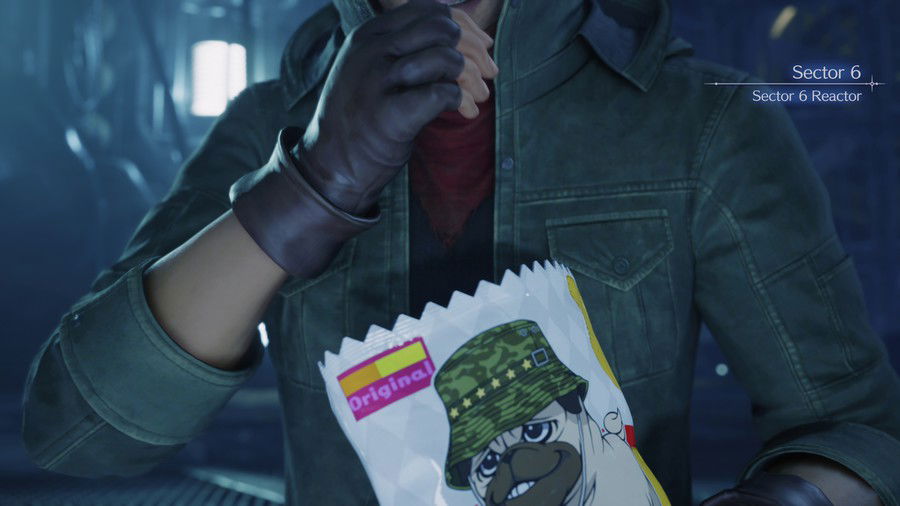
Pug - Pug is the universe where Zack decides to stop Biggs and save Sector 6. This is a world on the brink of destruction, where there isn't even any Lifestream for the reactor to suck up and transform into Mako. Biggs is shot by Shinra troops and Zack manages to escape them, his fate is uncertain.
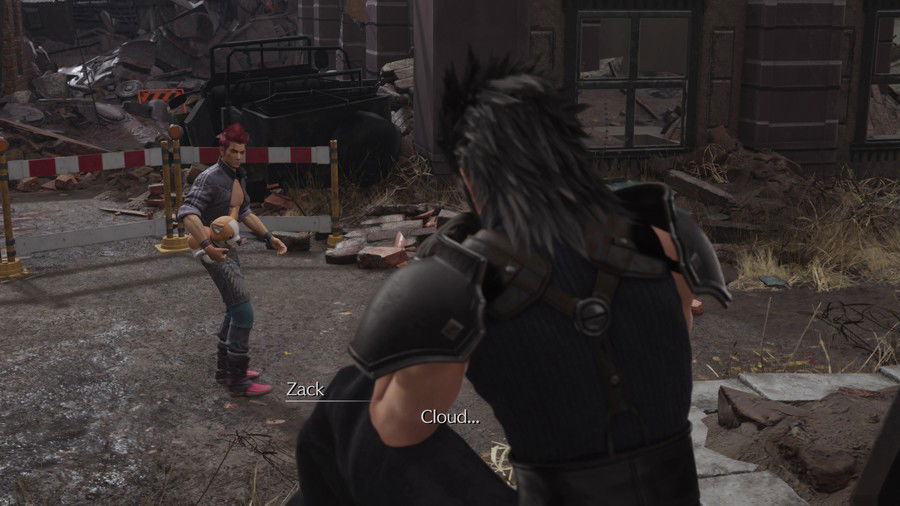
Shiba - Shiba is the universe where Zack cannot decide and returns to the church in Sector 5. There, he meets Sephiroth, who sends him to an abyss in space-time. This Zack is the one fighting alongside Cloud (we'll get to that soon!).
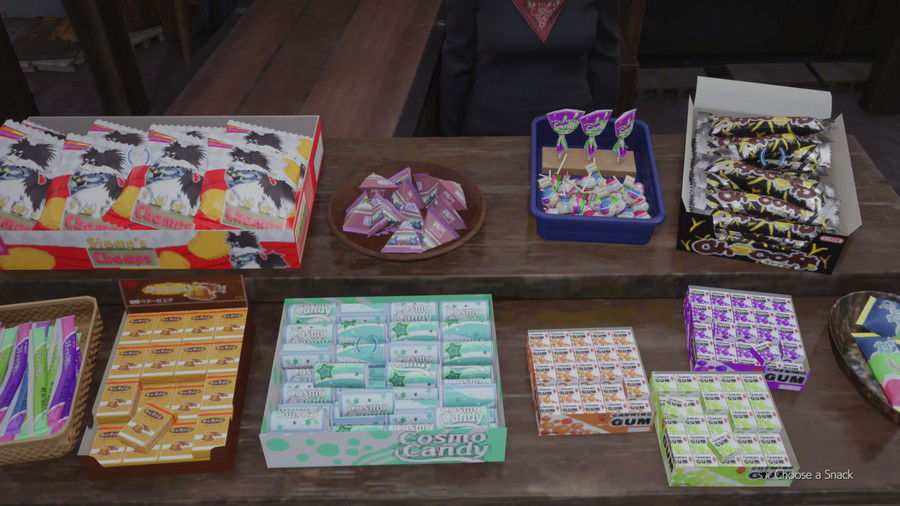
Spitz - Cloud and Aerith awaken from their comatose at the Sector 5 and walk to the outskirts of the city on a “date” before the end of this world of, symbolized by a huge scar in the sky.
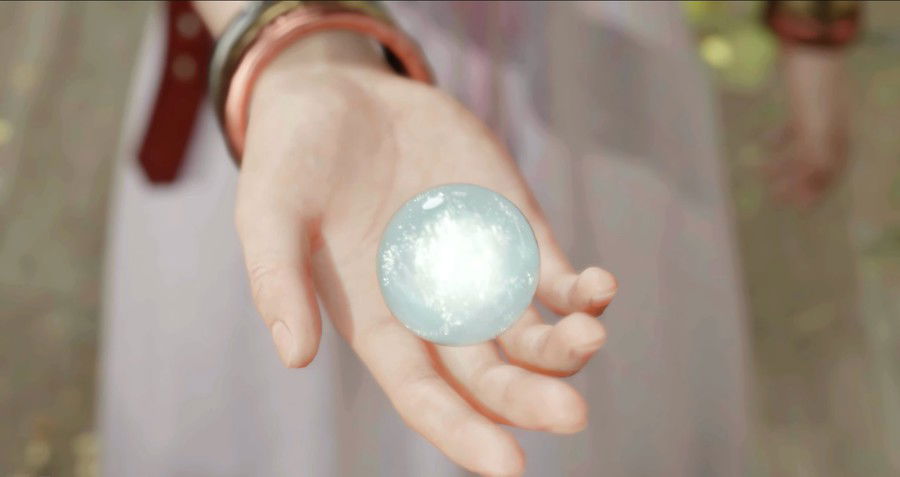
In this universe, Cloud and Aerith walk to the Sector 5 Church, where she says her goodbyes and hands over her White Materia to the hero before sending him back to his original universe as Sephiroth finds her. Aerith from the Beagle universe communicates with him through his dreams and takes the White Materia to the Forgotten Capital.
The Reality Between Universes
When Aerith pushes Cloud back to the Beagle universe, we see their surroundings take on a color similar to that of a rainbow, also present in the huge void when the hero is surrounded by Whispers and meets Sephiroth, who names it as “the true nature of reality”, where new worlds are born when the barriers of destiny are broken.
His goal seems clearer: Sephiroth plans to unite the worlds. The reasons are not evident, but the reunion he refers to no longer seems to be just about Jenova, but about reality itself. Like Aerith, Sephiroth can manifest in several universes or migrate between them, with enough powers to unite worlds or separate them.
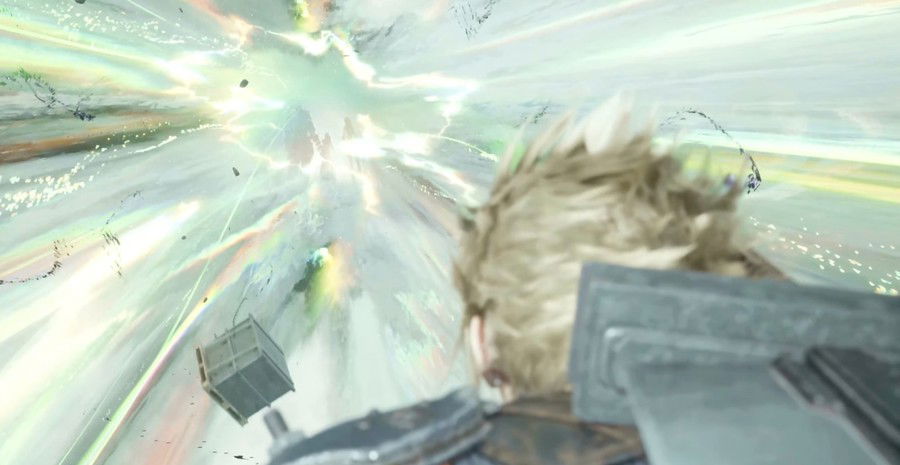
Given the moments where the “rainbow aura” appears during the chapter, it is safe to assume that it is a rift between the creation and destruction of universes in Final Fantasy VII, where certain actions trigger them as a sign that the destiny is being altered, and another universe is manifesting.
The Forgotten Capital
When the party arrives at the Forgotten Capital, they encounter Sephiroth again, who opens a scar in the heavens, from which the rainbow-colored aura manifests as the Whispers appear. Cloud and the others cross the city, facing them on the way.
Until this moment, the white Whispers had never confronted the heroes and/or attacked them. Just as Sephiroth now controls the black Whispers, it is possible that Aerith can control the white Whispers. In this case, Aerith herself was placing obstacles in their path to buy time until the moment of her death.
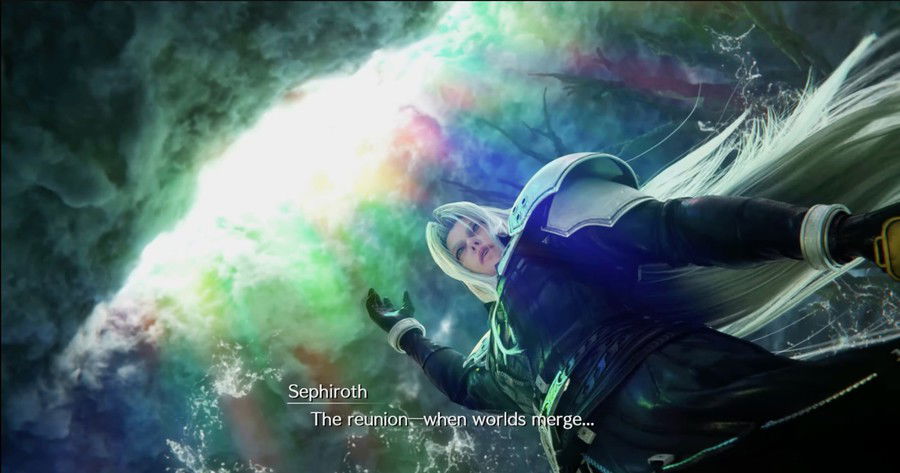
After the battle, the Whispers create a barrier around the entrance to the Forgotten Capital's sanctuary, and three black Whispers open a breach so that Tifa and the others can secure an entrance for Cloud - Sephiroth wanted Cloud, and only Cloud, to get to Aerith. Only he would have the power to intervene at that moment and defy destiny.
Cloud enters the portal. Whispers of both colors emerge around him without intervening until he approaches the altar, where they begin to block his passage, surrounding him as he wields his sword to attack Aerith.
This scene is known in the original game as a demonstration of the control Sephiroth has over the hero, where he is stopped at the last moment by his companions. Here, the Whispers seem to symbolize Sephiroth and Aerith's influence over Cloud, a dispute to make him deliver, or not, the fatal blow.
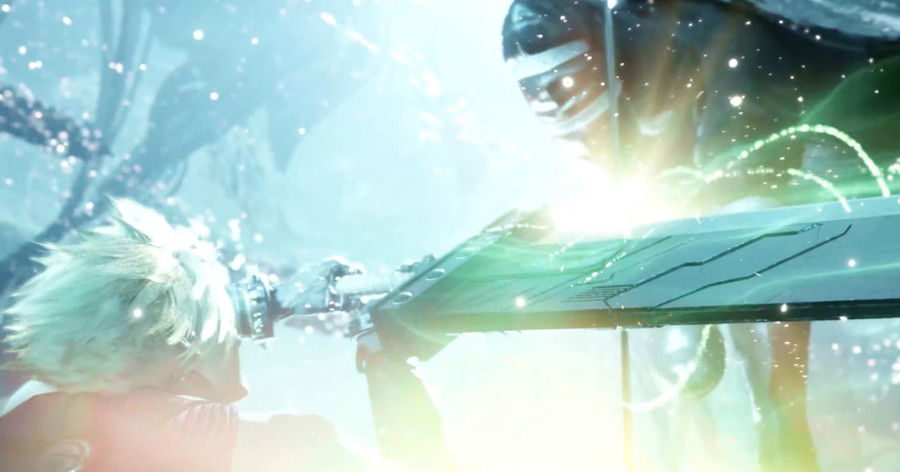
Sephiroth descends from the sky with his sword towards Aerith. At the last second, Cloud's sword gains a greenish glow, and he strikes the villain's blade, the friction between the swords shines with rainbow colors, symbolizing the creation of a new universe - Cloud deflects Sephiroth's sword, the rainbow appears around the altar, Aerith was saved from her death.
Aerith's Death
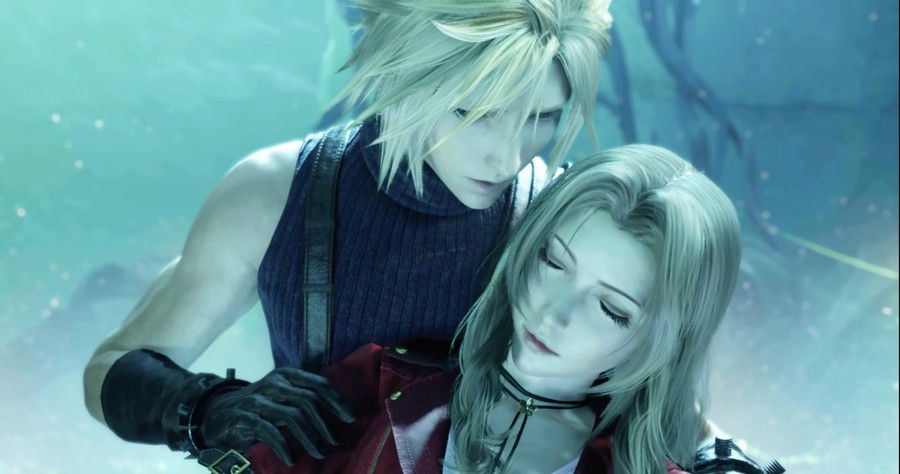
The Masamune falls to the ground, Aerith can be seen in the background praying as the Whispers fail to stop Tifa, Barret and the others from entering the sanctuary - destiny no longer needed to be preserved - a close-up of Sephiroth's sword precedes a pink interference, blood drips onto the floor, Aerith's body slowly falls. Cloud holds her and tears stream down his face.
While Sephiroth laughs, a greenish interference occurs, with Cloud saying phrases that we can't hear. It is likely these phrases occur in another timeline - that of the original game, whereas in Rebirth, Sephiroth states that Cloud's emotions are empty, as he is nothing more than a puppet.
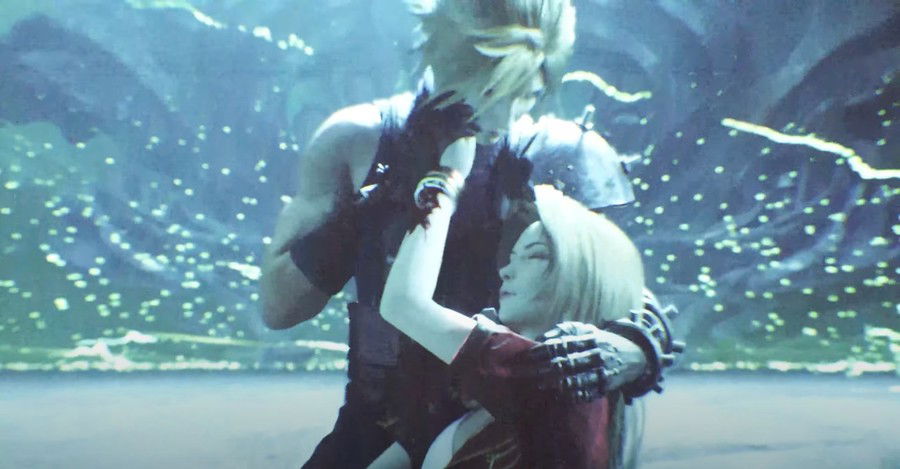
As he cleans his sword, another interference occurs, and Aerith, alive, caresses Cloud's face and says everything is okay. Barret and the others arrive at the altar and see, amidst a greenish interference, Cloud holding Aerith's body with blood smeared on the floor. It is clear this is the reality in the Beagle universe, while Cloud, seeing a living Aerith, has his consciousness trapped in another universe.
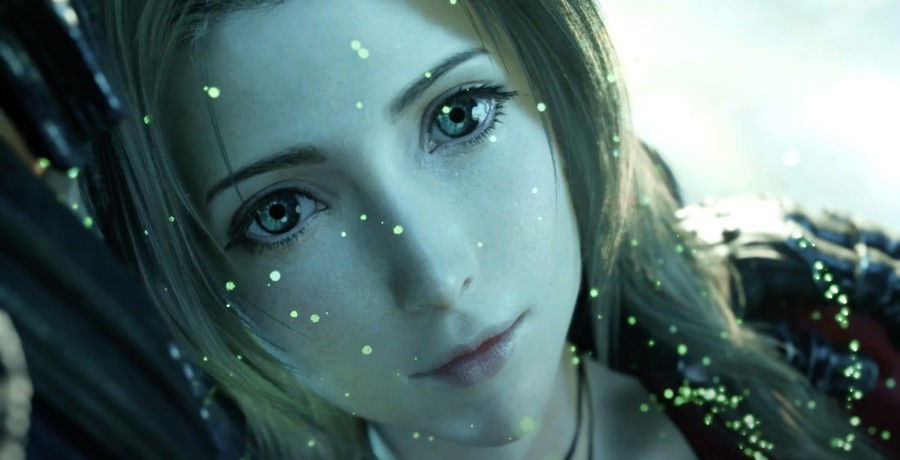
This detail is integrated into the gameplay against Jenova Lifeclinger, where all characters, except Cloud, start the fight with maxed out Limit Break bars. Limit Breaks are commonly associated in the series with a surge of emotion or danger which enables a special attack - Barret and the others are enraged by Aerith's death while Cloud, not seeing her that way, remains calm.
Sephiroth and the Battle in the Multiverse
After Jenova's defeat, Zack, thrown into the rift between worlds in the Shiba universe, is guided by white Whispers to Cloud and enters the same universe where the protagonist is during his battle with Sephiroth, with both recognizing each other and fighting together against the villain.
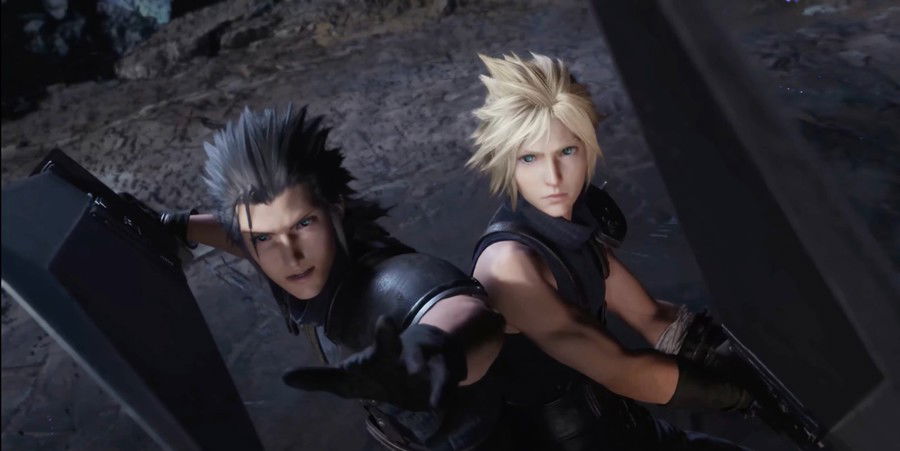
The world they are in looks like the End of Creation, the place where Sephiroth invited Cloud to defy destiny with him at the end of the Remake. Sephiroth mentions that worlds can separate in the same way they unite and opens a rift with his sword, pulling Zack into another universe.
Alone with Cloud, the villain transforms into the form that makes up the final battle, Sephiroth Reborn. Cloud receives the help of the white Whispers to climb Sephiroth's colossal body and attack his head, from which black Whispers exudes.
In the Beagle universe, Tifa and the others look for Cloud, who disappeared after defeating Jenova. Sephiroth Reborn manifests there, being confronted by the party. Meanwhile, Zack is guided to the Sector 5 Church of a reality on the brink of destruction, it is suggested Aerith helps and protects him from some of the villain's attacks, from which also teleported to this reality.
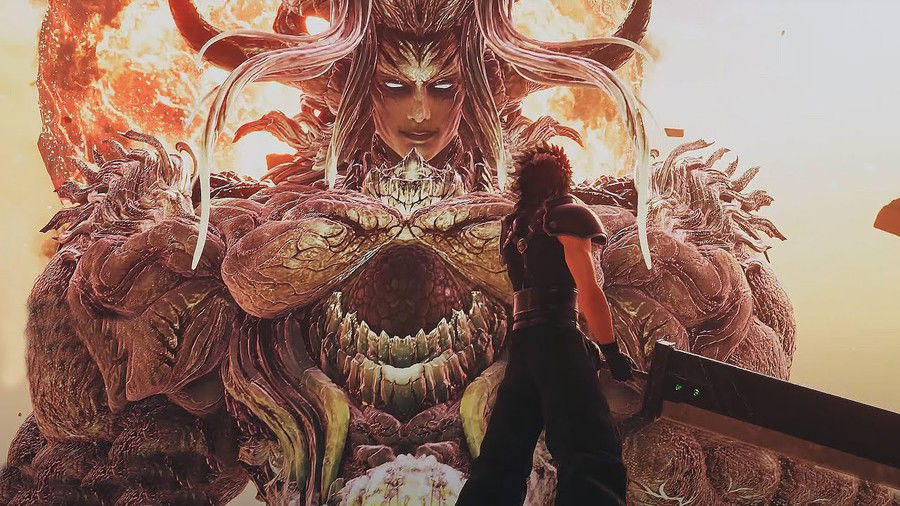
Cloud and Zack can sense each other's presence and even use a synergy attack at this stage, despite being in separate universes. Sephiroth's body and consciousness are in three universes, and the influence of the battle in one directly affects the other - as explained by the horn ripped off by Cloud and Zack, whose fall occurs in the Beagle universe, where Barret, Nanaki and Yuffie unite to defeat the villain's giant form.
Sephiroth resumes his original form and travels to the universe where Cloud is. Aerith manifests through a portal with the white Whispers, the rainbow aura envelops the surroundings and transports them to an unknown dimension, Sephiroth admits to Aerith he underestimated her.
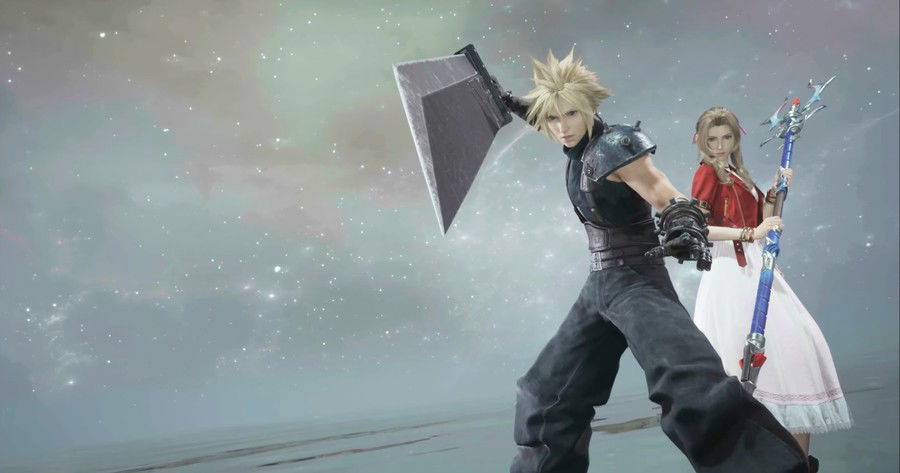
It is unclear which universe Aerith came from, but she is aware of the events at the Forgotten Capital, and thanks Cloud for what he did, while she is also aware of her death in his universe.
At the end of the battle, Sephiroth flies towards the horizon, while Aerith states the villain knows it's not over yet. The white Whispers surround her and Cloud in a rainbow aura as they intertwine their hands, Aerith disappears into the Lifestream, and Cloud is taken back to his universe.
Aerith's Burial and the Ending
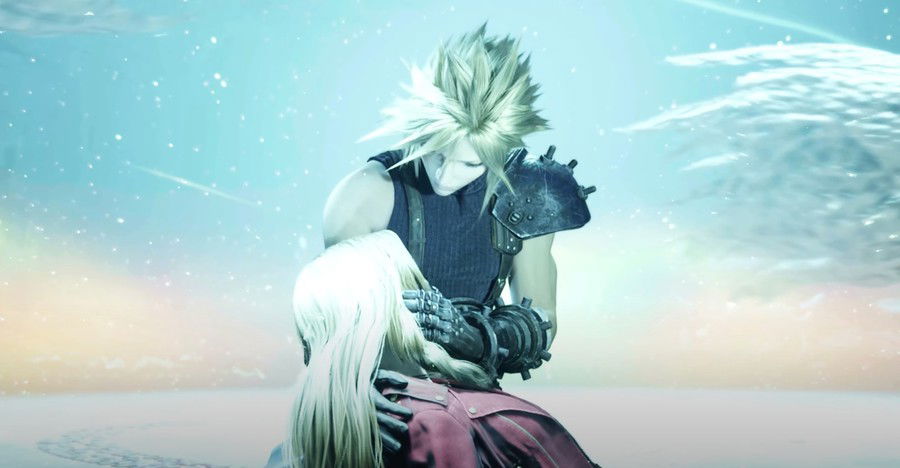
In the Beagle universe, Barret, Tifa and the others rush to Aerith's body, confirming her death. Cloud approaches - In his vision, her body is surrounded by white Whispers and the altar continues to be enveloped in the rainbow aura - While holding her in his arms, Cloud asks Aerith to wake up and, as she does, they both smile at each other.
The scene cuts to another moment, Aerith's body has already been buried. The group is in mourning, Barret cries, everyone seems sad, except Cloud, whose look and words sound alien to her friend's death. Tifa notices and gives a sigh when he responds to Barret indifferently.
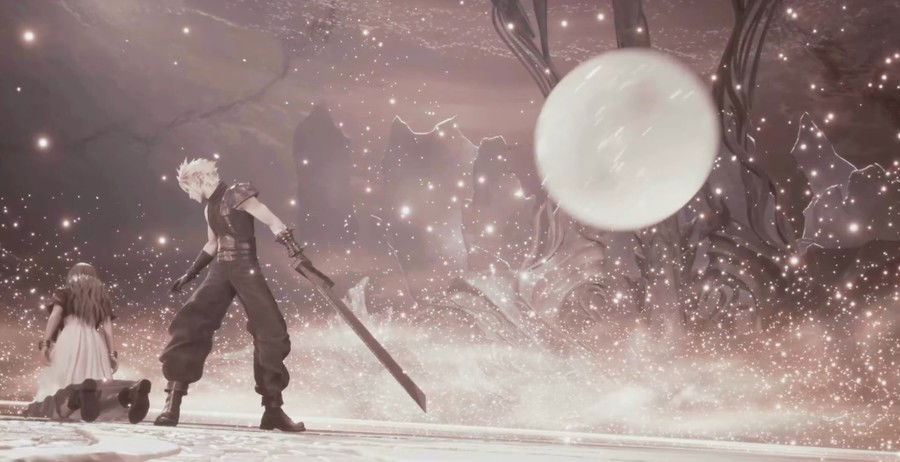
Cloud suffers another pink-colored interference, where he sees the moment when the White Materia falls into the altar's lake. When he looks to the side, he - and only he - sees Aerith and talks to her as if she were still alive. As the group leaves, Tifa sees Cloud staring and smiling into space.
Zack, transported out of the world on the brink of destruction by the white Whispers/Aerith, wakes up in the Sector 5 Church in an unknown universe. He contemplates that all those events were not a dream, and that just as worlds separates, they can unite again.
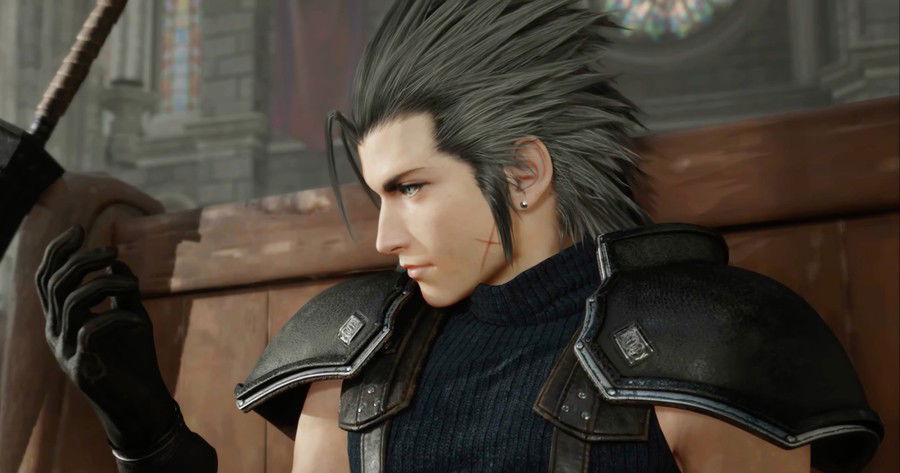
When we return to Cloud and the others, they are on the plains while Cid repairs the Tiny Bronco. Cloud holds what was once the White Materia and sees Aerith as if she were interacting with Barret and Cait Sith as they help repair the ship.
Yuffie cries for Aerith as she approaches Nanaki, who seems to sense her presence for a second, and Tifa, mourning both her friend's death and Cloud not being himself. All at once, Tifa feels like she has lost two important people in her life.
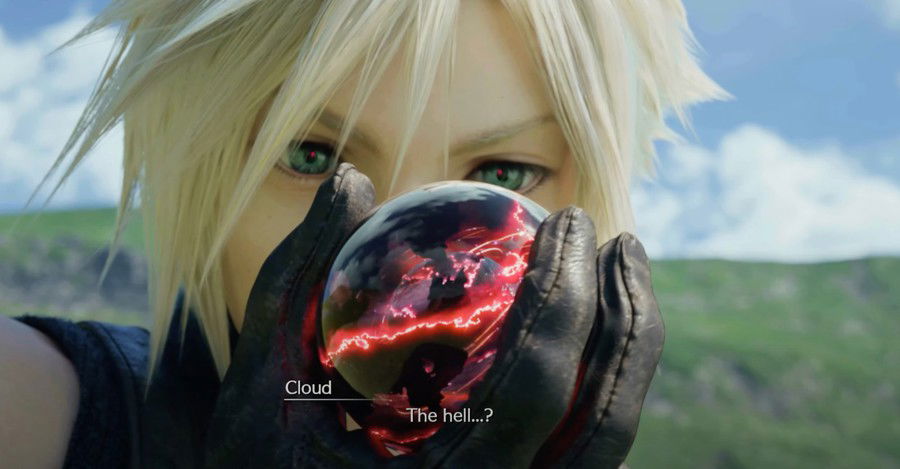
Cloud looks at the old White Materia again and puts it away, discovering he has the Black Materia with him. It is uncertain whether the Materia he held just before is the same and transformed, but it is worth mentioning that, according to Aerith, the Black Materia on the Temple of the Ancients was fake - Perhaps, the travel between universes or Aerith's death may have caused Cloud to gain possession of the real Black Materia.
Cloud suffers another green interference and mentions the Reunion. He hides the Black Materia in his sword and walks to the Tiny Bronco, where he sees a scar in the sky, just like in all the universes that were about to end.
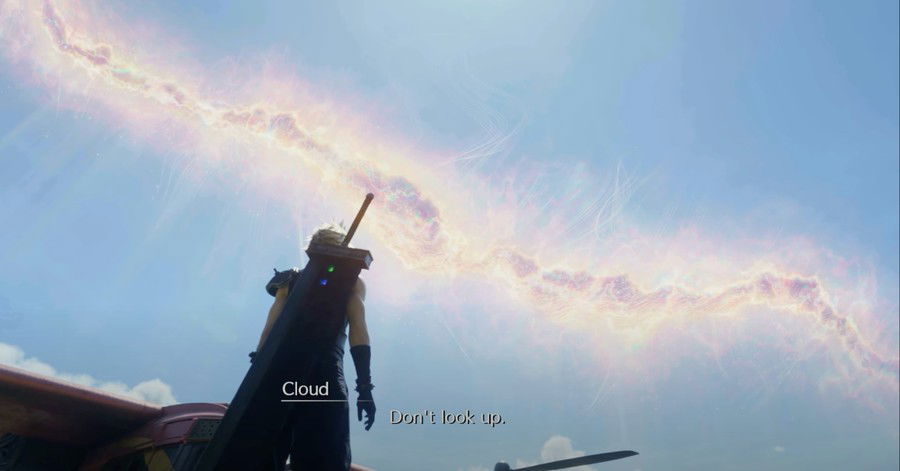
The hero is the only one capable of seeing it, just as he is also the only one to see and communicate with Aerith, with whom he promises to stop Sephiroth while she puts all her prayers to stop the Meteor. The Tiny Bronco sets off for the North.
Aerith says goodbye, Final Fantasy VII Rebirth ends with the phrase "No promises to keep at the journey's end".
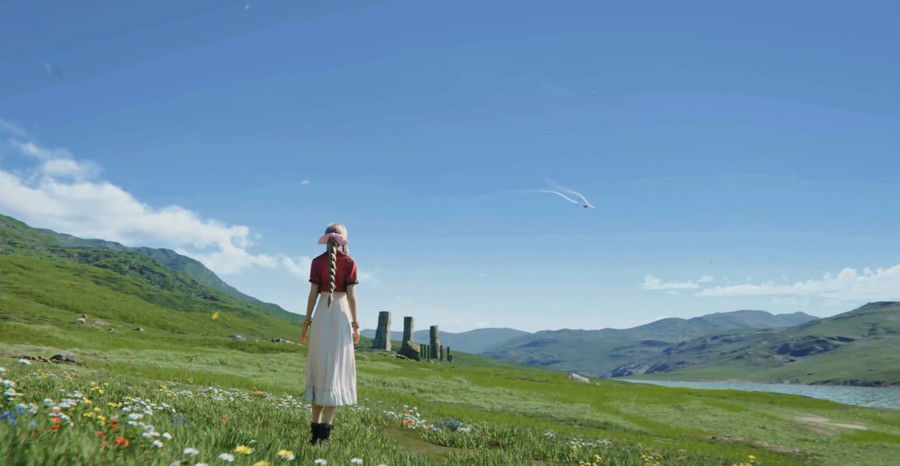
What are the ending's key points?

Theories and Possibilities: Where is Remake Part 3 going?
Given all the events that occurred in chapter 14, the third part of Final Fantasy VII Remake should follow, for the most part, the same line as the original game, but with a change in focus and scope around some more pertinent details and holes left by Rebirth.
The Wutai War
Shinra is at war again with a resistance led by Wutai. As indicated in some moments of FFVII Rebirth, this conflict is being orchestrated by Rufus and Glenn Lobrok to awaken the Weapons to take their Magnus Materia.
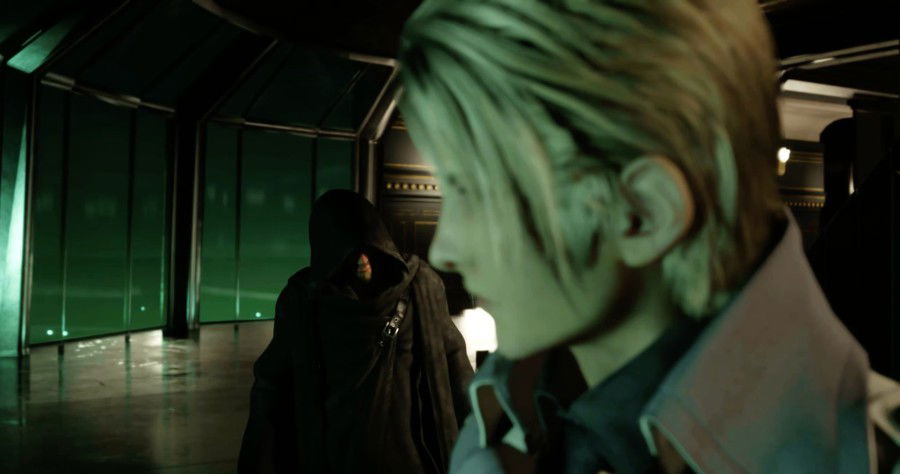
As indicated by his absence, Viceroy Sarruf probably doesn't exist and his name is an anagram for Rufus (スフール reads as “Sufuuru”). It is possible that Avalanche's attack on Shinra was planned for Rufus to take over the corporation's presidency and start the war with Wutai.
Sephiroth also appears to have his own interests in this war and the human emotion surrounding it for his plan to reunite the worlds, even to the point of taking Glenn's form to manipulate Rufus. Perhaps this is just a distraction to prevent Rufus and Shinra from reaching the Promised Land before the Reunion.
Cloud is split into multiple realities, or has gone into denial
Cloud's mental state has been a concern for the other characters since the events occurred in Gongaga. There are several dialogues and moments where the hero appears to incorporate Sephiroth's attitudes and personality, as if he were controlled by the villain.
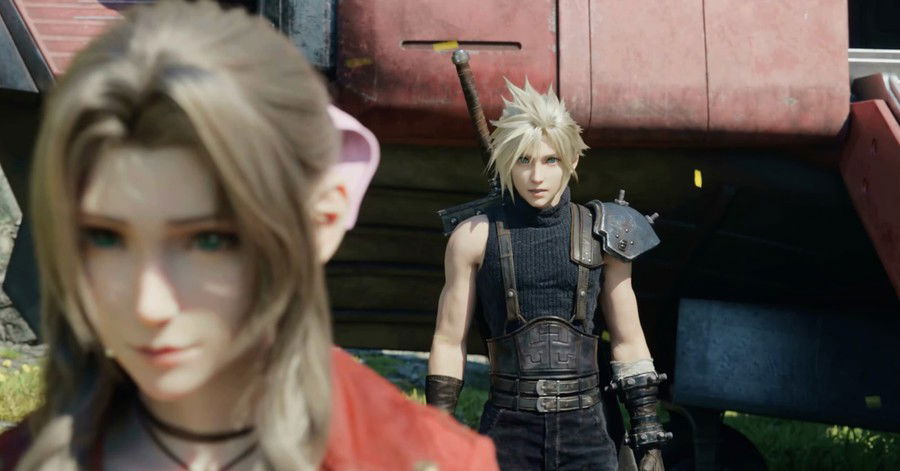
At the end of Rebirth, Cloud is even worse: to his companions, he is talking to himself and acting as if Aerith is still with the group. Tifa shows clear signs of how worried she is about his sanity, and Barret tries to remind him of the position he is in and how he needs to hold his own and carry the burden of Aerith's death - a fact he disregards. After all, in his perception, she is alive.
The means and motives, however, are not clear. Would Cloud, by deflecting Sephiroth's attack, have created a new reality where Aerith survives and has his consciousness been trapped in while his body is in the Beagle universe? Or would Cloud have become a key player in the worlds' reunion plan, as indicated by Aerith and Sephiroth's ability to move him and Zack to other universes?
Another possibility, much more acceptable if we don't take too much of the multiverse into the equation, is that Aerith is manifesting herself to Cloud through the Lifestream, or that Cloud's memories are manifesting her in his mind through grief, or the guilt surrounding it - A theme which would connect the events of FFVII Rebirth to Advent Children.
The fact is that the hero ends the game with a fractured consciousness, trapped in a parallel reality where Aerith never died, either because she is alive in another timeline, or because he is in denial of his own grief.
The Reunion and its Aftermath
It is evident that the next destination for Cloud and his friends is the Icicle region, where the Northern Crater is located. The Black Materia plays a fundamental role in this part, and a crucial difference compared to the original game is that it is with Cloud instead of Sephiroth.
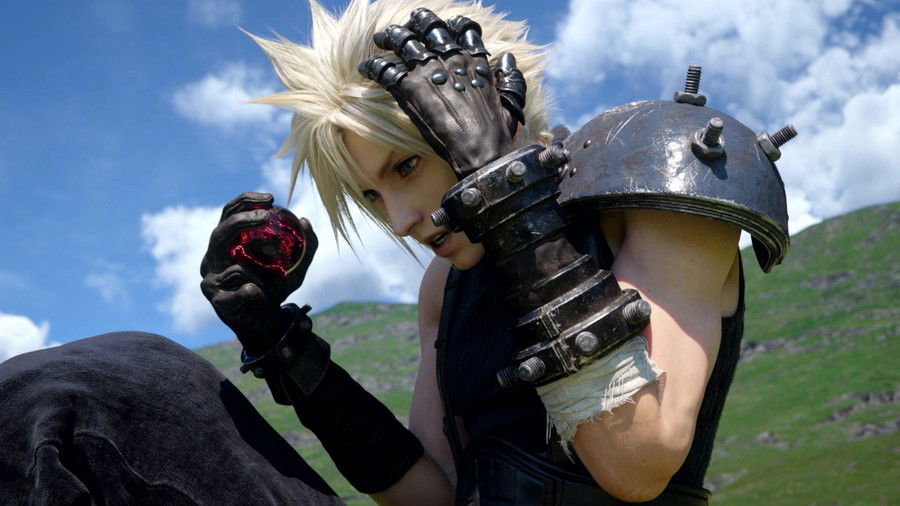
We can assume the third game will begin with the group arriving at the snow-covered plains and facing the Turks, and the events behind the Reunion will occur according to Final Fantasy VII, but its consequences could differ greatly from the original work and create new plot twists and reimagine the majority of events.
The most considerable change may occur around Weapons now that they have Shinra's attention for their Magnus Materia. The creatures we see in Rebirth are not half the size they have in the original game, and may be smaller versions created by the Planet depending on the scale of the threat against its life, so it is possible that the colossal Weapons have a more active participation in the plot during the Wutai War, or in the events which will take the heroes to Rocket Town and Mideel.
Sephiroth, Aerith, the Planet and Destiny
While the reasons are still unclear, the Remake maintains the essence of the original work of having three powerful manifestations in the Lifestream: Sephiroth, Aerith and the Planet.
Sephiroth and Aerith appear to manipulate the game's events to alter and/or preserve destiny in favor of their goals. He plans to unify the multiverse and create a reality where he becomes one with the Planet, while she intends to stop him and the Meteor. This is still, despite the extra layers of complexity, the same story told in Final Fantasy VII.
The Planet, however, is also a living entity in the game's universe and has its own plans already in motion: the Weapons exist to protect it from what it sees as a threat to its preservation, and it is possible that their appearance early in the Junon and Gongaga reactors is a natural consequence of the impact the Mako Reactors have on the Lifestream, or the imminent threat the creation of timelines has established.
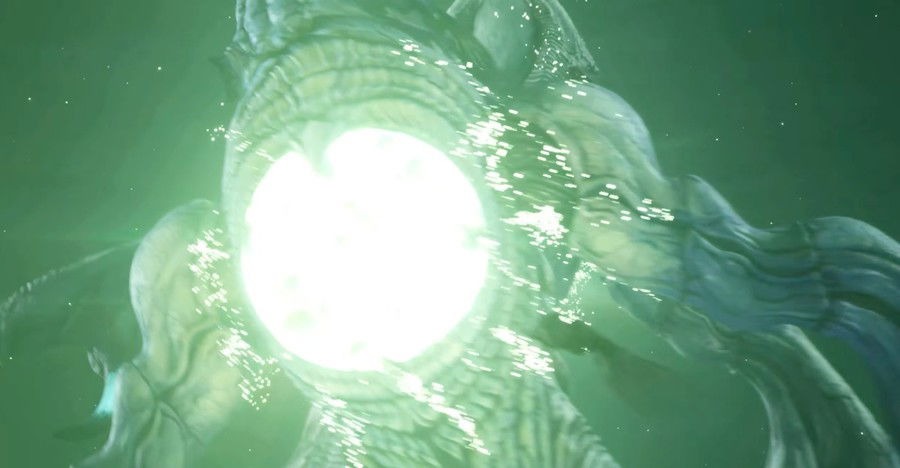
Weapons are also seen fighting the Whispers and Sephiroth when Tifa is swallowed by one of them in Gongaga, and in the last minutes of Chapter 14, we can see their Materia emit a clear light and repel the black Whispers. This scene may be linked to the White Materia being activated, since it is up to the Planet to decide how it will be used, so Weapons may be transporting it to the center of the Lifestream.
In the original game, Bugenhagen mentions how Holy can eliminate humanity if the Planet decides to do so, and there has always been speculation surrounding Aerith's intervention at the last moment to prevent humanity's extinction, and this aspect still seems preserved for the third episode, only more convoluted due to the Multiverse and how the end of the world seems like an inevitable reality for most of them.
It might be up to Aerith and Sephiroth to guide Cloud around a specific destination in furtherance of their plans for the Planet, which tried to use the Whispers in the Remake to maintain the integrity of this universe, but now that the boundaries of fate have been broken, reality is fragmented into several timelines - and as indicated by Cloud himself at the start of Chapter 14, the Planet is screaming, it may be suffering from these machinations.
The Remake is flying too close to the sun, and might get burned
Multiverses and timelines are complex subjects. Few works of fiction and audiovisual manage to portray this theme comprehensively without becoming unfocused and/or tripping over its inherent flaws, and it requires extra care not to sound forced, especially in a Remake.
Square has already worked with timelines and parallel worlds in several works before Final Fantasy VII Remake, and the way in which the trilogy seems to approach this theme is close to one of the company's controversial games during the PlayStation One era - Chrono Cross.
“History is composed of choices and divergences. Each choice you make creates a new world and brings forth a new future. But at the same time, you're eliminating a different future with the choices you didn't make. A future denied of all existence because of a change in the past.”
- Miguel - Chrono Cross
In the last chapter of FFVII Remake and FFVII Rebirth, we follow the emergence of new timelines and universes at crucial moments in history: they are created and come to an end as Zack and Cloud make important decisions.
Multiverses operate similarly in Chrono Cross: a small intervention at a key point in History alters reality to the point of dividing it into two worlds, one where Serge is alive and another where he died.
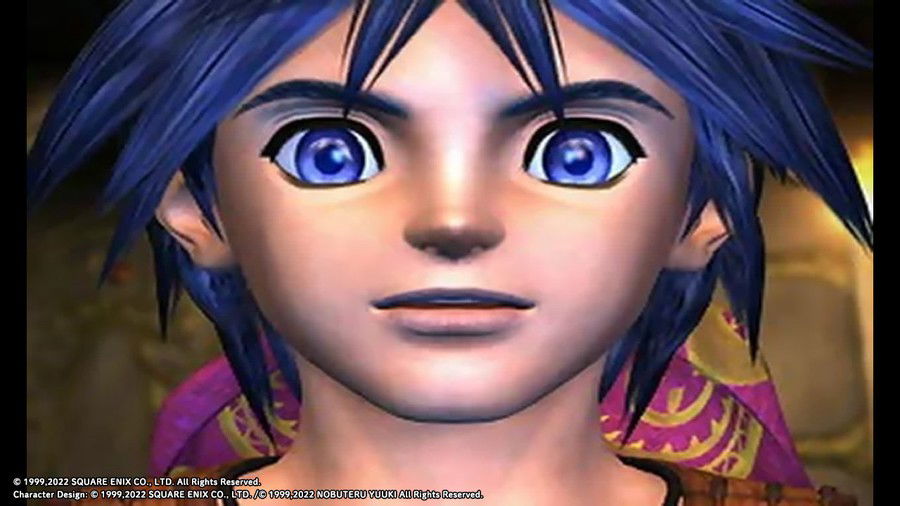
These and other events are orchestrated to free a certain character from Lavos's control and permanently eliminate it from the timelines, or occur by chance during studies about timelines occurred in the game's past or present, and even Serge's actions can define the existing universe - The Chrono Cross itself, used to defeat Lavos, aims to unite the worlds to create a new reality.
The game also presents a huge sense of consequence for its predecessor, Chrono Trigger, with shocking revelations about the future of its heroes and how their actions affected reality because the future they avoided ceased to exist - The world was saved, but at what cost?
As mentioned by Sephiroth, worlds are also being born and dying in FFVII in what he calls the “true nature of reality,” and both he and Aerith can freely navigate these worlds and intervene in future events.
The two key points in the Remake timelines involve the moment when the group freed themselves from the bonds of destiny and created the Terrier universe, where Zack survived, and the moment in which Cloud interferes in Aerith's death, whose we will only know the result in the third game - And the problem is that the complexity around a Multiverse is equally proportional to the number of universes created in its unfolding.
So far, Remake's writing has turned this concept into a coherent but complicated proposition in the retelling of Final Fantasy VII's story. However, the setbacks are already noticeable and have affected Rebirth on its most awaited moment.
A Grief Rewritten
In my review, I mentioned that Final Fantasy VII Rebirth is the best and most ambitious love letter Final Fantasy VII's legacy could receive. I keep these words since the general scope of the work and everything it offers in gameplay and narrative throughout almost the entire game... But its development made a huge stumble in the last chapter.
Aerith's death is one of the most devastating moments in gaming history. Its cultural impact on video games is felt almost 30 years after its execution, and one of the great expectations of Final Fantasy VII Rebirth is how the reimagining of this scene would happen - And it was far too convoluted.
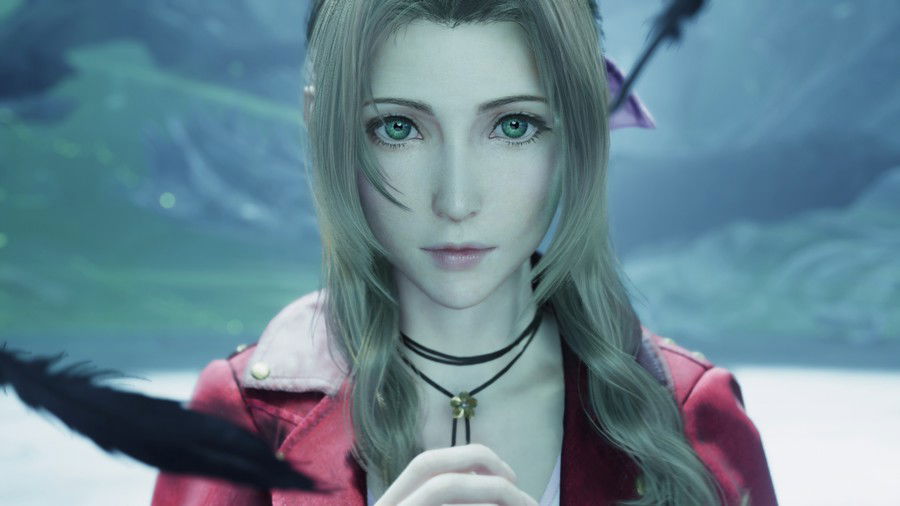
The dramatic impact was replaced by discomfort: seeing Aerith transition between being dead or alive creates a knot in the head of any fan of the series, and the execution from the moment of her death to the epilogue brings so many doubts that it hinders being moved, after all, we didn't even know if she was really dead until the last second, and we won't know what really happened to her until the next game, going against what her death means for the series.
The focus of the Forgotten Capital sequence was executed with so much emphasis on the Multiverse and the possibilities created with Cloud's intervention that it ended up neglecting FFVII's most important legacy for fiction. The mere change of having Aerith interact with Cloud removed all the emotional impact surrounding her death, right after preparing the interlocutor for that moment at the start of the chapter, when she hugs him and says her goodbyes asking him to not blame himself - All in favor of generating more suspense and raise more doubts around the Multiverse and Cloud's consciousness and personality conflicts, and the trade-off didn't felt like it was worth it.
There was no need for Aerith to interact with Cloud when he held her body, or to create doubt whether she was dead before the final battle. The last phase against Sephiroth would have worked as her last act in terms of gameplay, the fact Cloud sees her after her burial would still create doubts whether he is in denial, going crazy, or if she is manifesting through the Lifestream or from another timeline - The last conversation between them in the epilogue would have been perfect to go through denial in grief and its eventual acceptance, and Aerith's farewell to the players.
All the changes surrounding the last chapter do a good job of maintaining the mystery around Aerith and the timelines, but it exposes the main problem with embracing the concept of the Multiverse.
Multiverse and Sense of Consequences
One of the most difficult challenges in creating a Multiverse is to make it important to the narrative process without turning it into a facilitator - a kind of Deus Ex-Machina for any too complex situations in the plot.
There are many examples in fiction where the existence of multiverses nullifies the sense of consequences of a history, since there is always a timeline or universe where certain events never happened. The world could end and all the characters could turn into cosmic dust because, in the end, there will always be this loophole for that to not exist or not have real consequences for the narrative.
Aerith's case is emblematic of this case: since Cloud sees her as alive and there are signs of him being trapped between timelines symbolizes the possibility of there being a world where Aerith is still alive, just as there is one or more universes where Zack is alive.
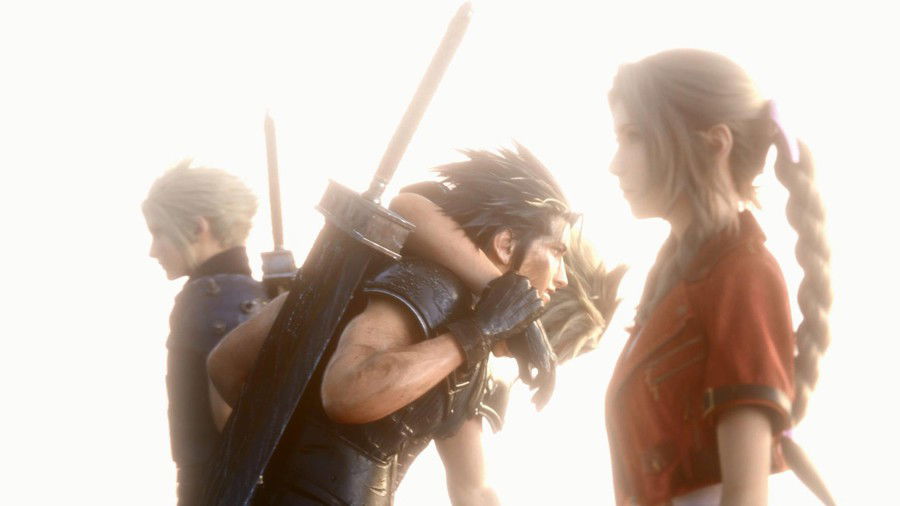
While their permanence brings new consequences for the universes where they are, it also gives developers the possibility of creating narrative flexes to justify a certain plot element rather than ensuring that they are not too exaggerated to the point of forcing a Deus Ex-Machina across the Multiverse.
As much as I dislike defending tradition as opposed to innovation, we need to recognize that rewriting stories requires care not to remove the sense of importance from their narrative, and I hope Sephiroth succeeds in his plan to unite the universes in the third part to the point it's not reversible.
Thus, all events that occur in the Remake's retelling will be permanent, without requiring exaggerations to understand how the story ends and avoiding random excuses about timelines and multiverse for situations as complex as the representation of grief in Final Fantasy VII and its implications, both in the Remake and in the original work.
Conclusion
The last part of the Remake has a big challenge: keeping Final Fantasy VII coherent without tripping over the common flaws of a narrative about multiverses and timelines. The series has already addressed this topic in other games, but none of them with such ambition, nor directly linked to one of the most loved titles by fans of the series.
The entire narrative surrounding retelling the game's story was outstanding in Final Fantasy VII Rebirth, and except for its convoluted last chapter, its plot brought more beauty than confusion even when it deviated too much from the path taken by the original game - A fascinating work whose ending leaves a bittersweet taste.
It will be a few years before we understand what to expect from the third episode and what direction its story could take. Until then, both the most ardent fans of the original work and the biggest Remake enthusiasts can appreciate the new games for their successes and raise pertinent doubts and questions about their mistakes.
Therefore, we would like to know from our readers: what are your opinions on Final Fantasy VII Rebirth and its ending, and what are your expectations for the third part?
Thanks for reading!

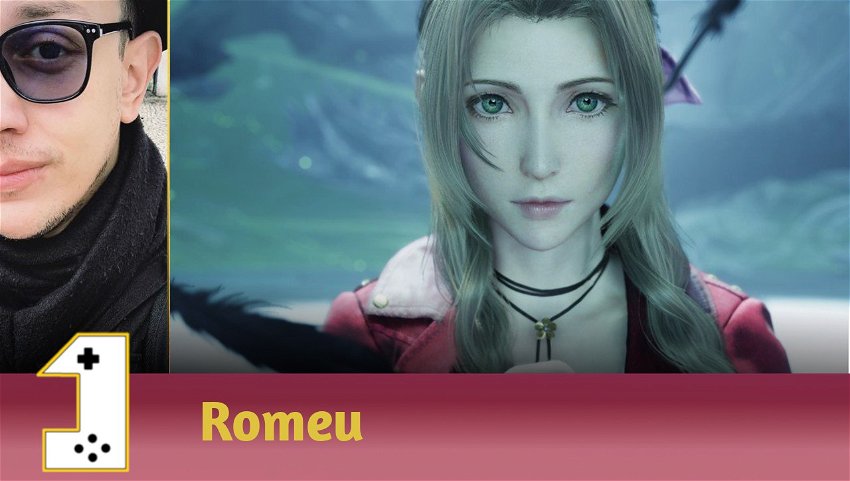





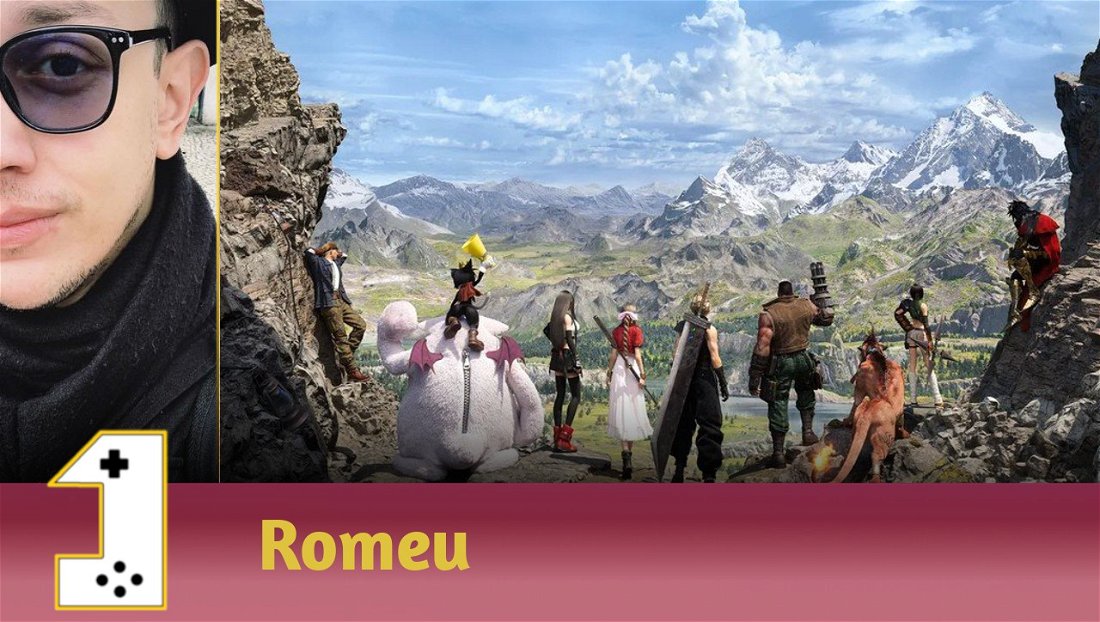
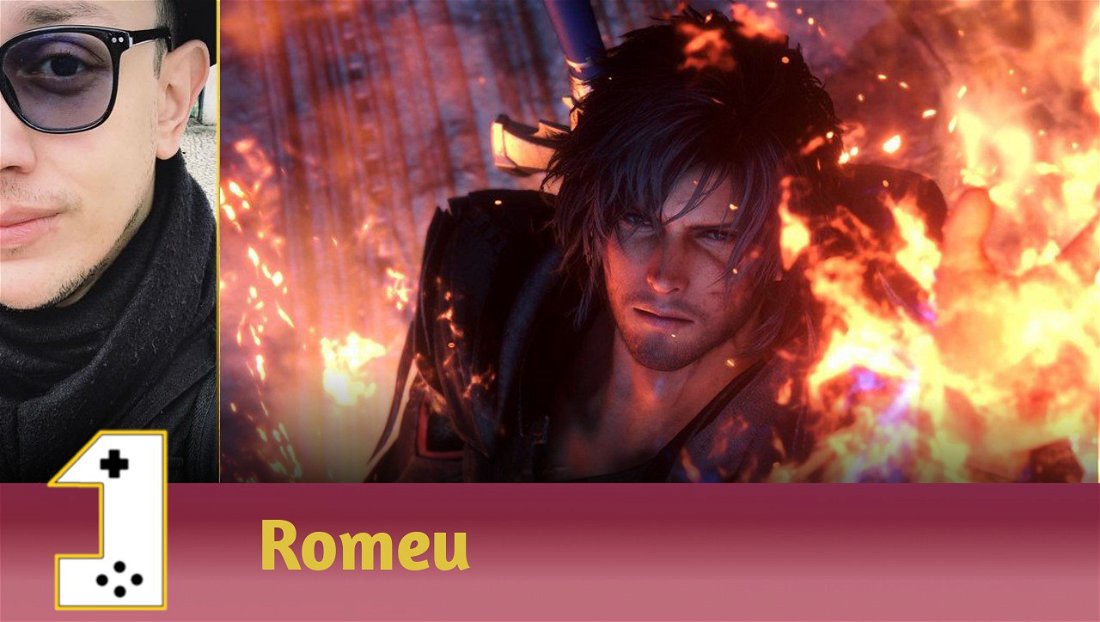



— Comentarios 0
, Reacciones 1
Se el primero en comentar